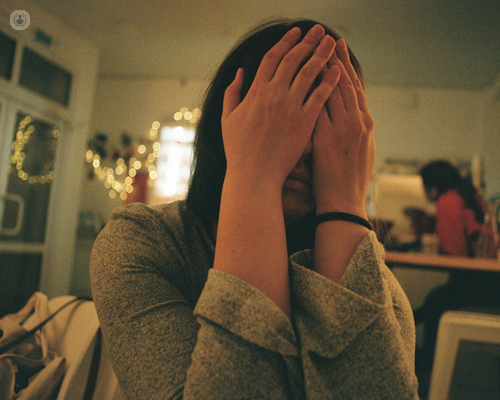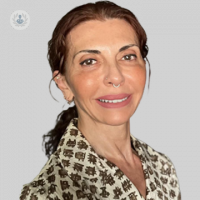FAQs about anxiety
Written in association with:Leading psychologist Dr Daniela Rossi answers some of the most commonly-asked questions about anxiety, in this highly informative article.

What is anxiety?
Anxiety is an adaptive response that occurs when we feel under threat, whether real or imagined. It’s experienced through our thoughts, emotions and physical sensations. This response is commonly called ‘fight, flight, or freeze’. It’s automatic and, therefore, outside our control.
Anxiety is not one condition but rather an umbrella term that encompasses various mental health disorders, for example:
- Generalised anxiety disorder (GAD)
- Obsessive compulsive disorder (OCD)
- Panic disorders
- Phobias
- Social anxiety disorder
- Separation anxiety disorder
- Agoraphobia
- PTSD
What are the most common triggers of anxiety?
Anxiety triggers can be different for each person; some individuals may have one specific trigger, while others have multiple triggers. In contrast, some individuals can’t identify triggers for anxiety at all.
The most common symptoms are:
- Health issues
- Lack of sleep
- Medications
- Caffeine
- Drugs and alcohol
- Negative thinking
- Self-criticism
- Fear of people’s judgement
- Financial problems
- Relationships difficulties
- Pressure at work
- Public speaking
What are the symptoms of anxiety?
The most common physical symptoms are:
- Churning feeling in your stomach
- Feeling dizzy
- Pins and needles
- Feeling unable to relax
- Aches and pains
- Faster breathing
- A fast heartbeat
- Sweating or hot flushes
- Sleep problems.
- Grinding your teeth, especially at night
- Feeling sick
- Changes in sex drive
- Panic attacks
The most common psychological symptoms are:
- Having a sense of dread or fearing the worst.
- Worrying that people can see you and judge you for being anxious.
- Feeling unable to stop worrying or feeling that if you do, bad things will happen.
- Worrying about when another anxiety or panic attack might happen.
- Continuing seeking reassurance from other people.
- Worrying that people may be angry or upset with you.
- Worrying about losing touch with reality.
- Low mood and depression.
- Depersonalisation or feeling disconnected from your mind or body.
- Derealisation of feeling disconnected from the world around you or like the world isn't real.
What strategies are there that can help to reduce anxiety symptoms?
- Slow breathing exercises
- Progressive muscle relaxation
- Mindfulness skills training
- Keep active
- Food and sleep hygiene
- Engage with activities you enjoy
- Spend some time in contact with nature
When should I seek professional help for anxiety?
Stress, anxiety, worrying and feeling down are everyday experiences in life, especially when we face difficult times. These emotions and the physical sensations accompanying them can often be resolved by learning to accept them or problem-solving the issues we struggle with when possible.
Knowing when to seek psychological help depends on how debilitating the anxiety symptoms are and how long they have been going on. For example: if the individual feels overwhelmed or suicidal, unable to work, study, meet with friends or engage in social and leisure activities they used to enjoy, for more than a few weeks, it’s highly recommended they seek professional help.
Are you considering getting medical assistance for anxiety? Arrange a consultation with Dr Rossi via her Top Doctors profile.


